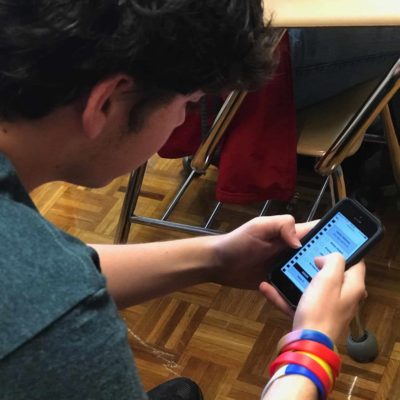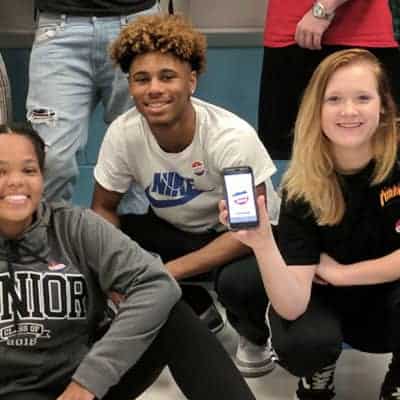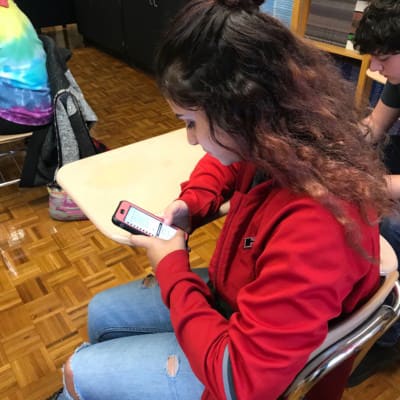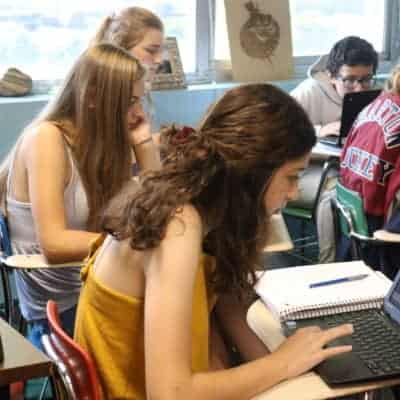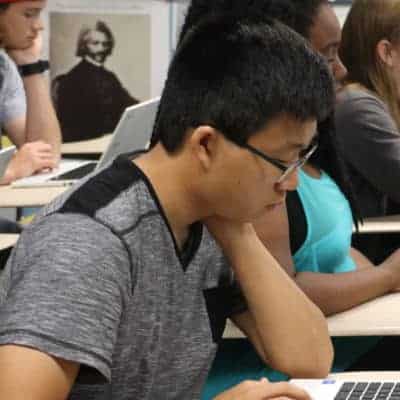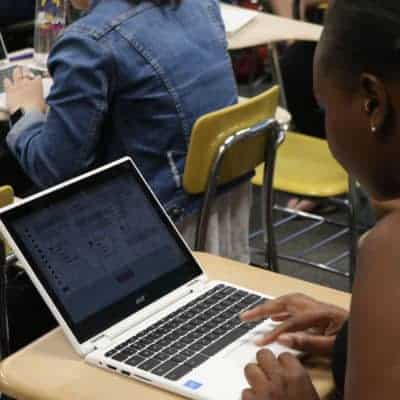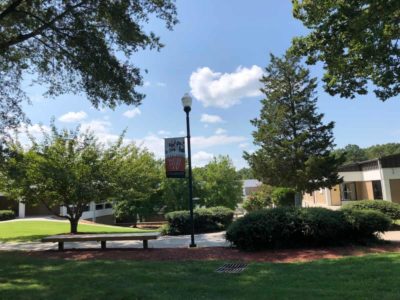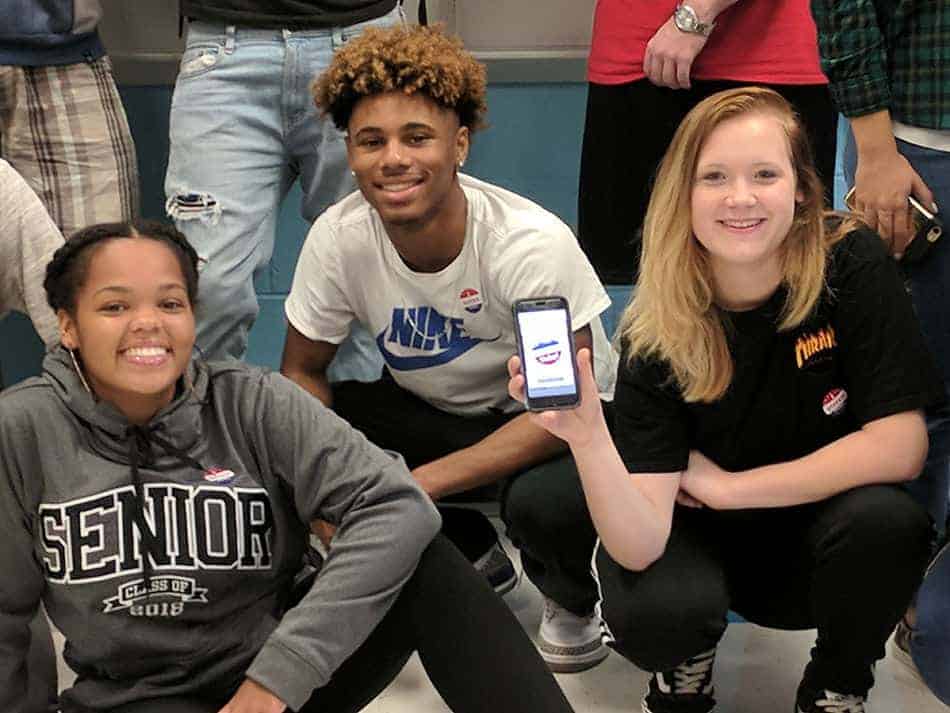
Are you planning on voting in the midterm elections this fall? Odds are if you are between the ages of 18-29, the answer is no. In the 2014 midterm elections, North Carolina’s 18 to 29-year-old voters made up only 8.3 percent of the voting population. 1
First Vote NC aims to improve youth voter turnout by demystifying the voting process and making voting a habit before students graduate from high school.
An initiative of EducationNC, First Vote teaches high school students across North Carolina the mechanics of voting by giving them the opportunity to participate in an online, simulated election, authentic down to the customized ballot based on the address of the student’s school and an “I VOTED” sticker. The First Vote NC voting simulation is 21st century experiential learning at its finest.
First Vote offers North Carolina students and educators an innovative, first-in-class, web-based platform, creating an opportunity for the state’s young people to engage in the democratic process before they turn 18. First Vote’s simulations of local, state, and national elections enable students to learn about the mechanics of how, when, and where to vote; to discuss the election; and to actually simulate the act of voting.
Educators used the First Vote NC platform to lead their students through simulations in both the 2016 presidential and 2017 municipal elections. More than 32,000 students from 76 high schools in 46 counties across the state voted in the 2016 election simulation. More than 5,300 high school students from 47 schools in 33 counties participated in the 2017 local election simulation. First Vote NC is back this year with a free 2018 midterm election package.
While the tool is designed with the educator in mind, our ultimate audience is high school students — North Carolina’s future voters. Our multi-layered approach includes an authentic simulation election, issue-based questions, demographic data collection for post-election analysis, a lesson portfolio, and a private online discussion platform for teachers.
Below is a brief description of each aspect of the program.
Online platform ballot
EducationNC has developed a web-based platform that allows each school to access a customized ballot. For local, state, and national elections, every participating high school receives a ballot that reflects the precinct of the school. That ballot looks identical to the one a student would receive if they were going to the polls.
The First Vote polls are open for early voting in step with the “real” election and close at the end of election day. Results are available by the time students come to school the next day, so they can see how their vote compared to the general election. The only aspect of the First Vote election that does not reflect the broader election is that we allow students to use laptops, school computers, phones, or tablets to vote. This feature makes the process considerably easier for schools and students to take part. Below is an example of the ballot from the 2016 general election:
 Issue-based questions
Issue-based questions
To further engage students, First Vote creates issue-based questions that are attached to the ballot. In post-election discussions, students go beyond election result comparisons with their peers across the state to discuss how their perspectives on issues compare as well. This is meant to encourage students to discuss the role of government on topics such as parks, media literacy, class size, and technology.
 Demographic data
Demographic data
The last section of the voting experience is a short demographic questionnaire. This information enables First Vote to present the election results and issue-based questions in greater context. Once again, First Vote seeks to lead students to a deeper discussion about what role things like gender, geography, and how you access information influences your view and your vote.
 Discussion platform
Discussion platform
First Vote has teamed up with the NC-based company Participate to develop a private, online discussion group for participating First Vote teachers. This resource is provided free of charge to any teacher who signs up, as with all of the First Vote initiative. Teachers can peruse the lesson plan portfolio, check out links to other civics groups and information, and most importantly, share with one another best practices, questions, and discovered resources. The platform extends to private Twitter chats as well.
Lesson portfolio
First Vote worked with Participate to develop eight lesson plans to include in a portfolio on the Participate site. They include:
- How to conduct a schoolwide election
- How to vote and why it matters
- National, state, and local elections – what’s the difference?
- Political parties and ideology
- The role of media in elections
- The role of money in elections
- Using the First Vote NC results
- Six constitutional amendments on the 2018 ballot
While teachers can access numerous lesson plans online, there are several elements that make First Vote’s distinct: they are aligned with NC standards, offered free of charge, and designed to be relevant, active, and manageable.
Visit First Vote NC to learn more about First Vote NC, and sign up!

